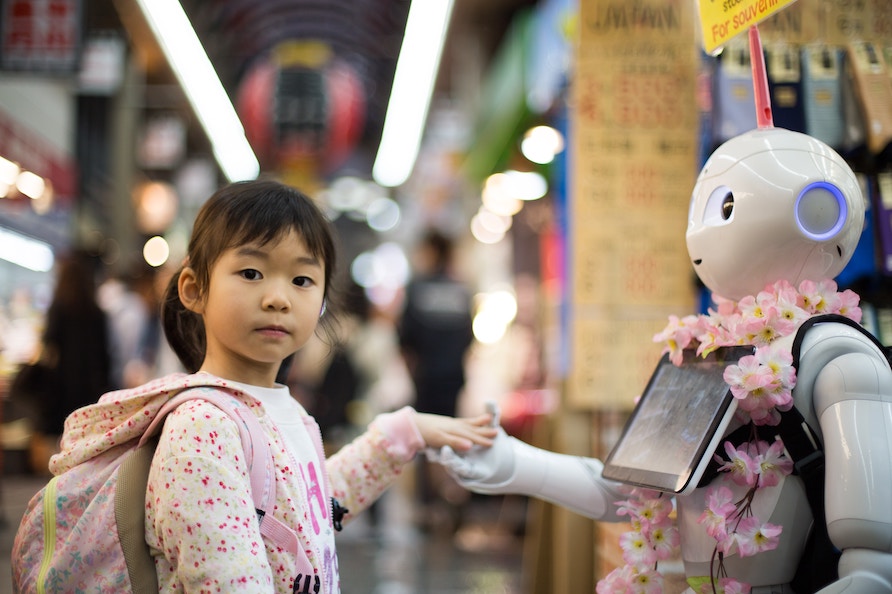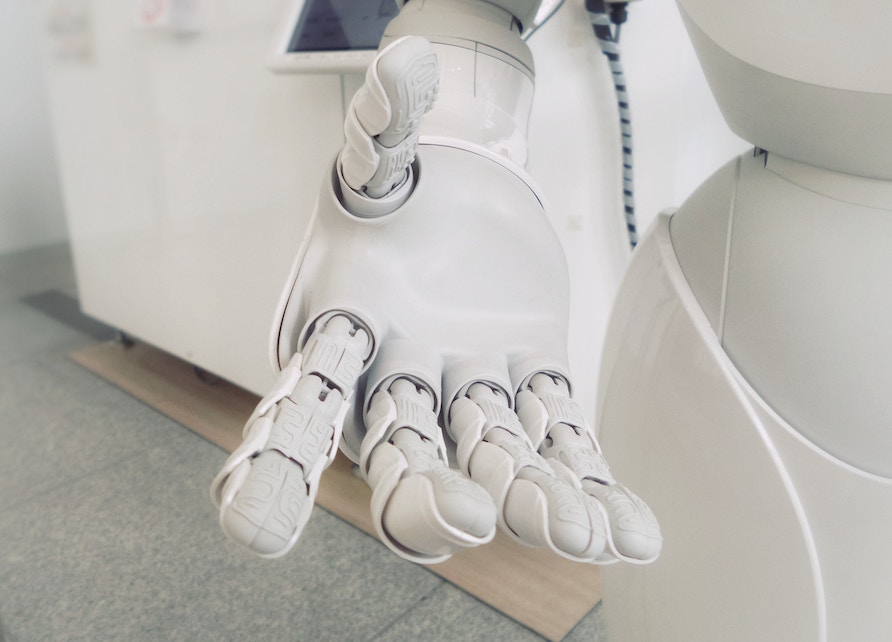How Should We Adapt our Society to the Robot Revolution?

In the past scientific and technological developments have already radically changed the world. For current and future societal challenges, too, technology will be an important part of the problem-solving process for, for example, the aging population, rising health costs, the need for healthier and better work, the environment, climate change, mobility and the energy issue. At the same time, however, a new and very important challenge is emerging, which is to ensure that robotisation and artificial intelligence continue to benefit people and society
How should we adapt our society to the robot revolution?
We can raise awareness about technology and activate open innovation. The fear of technology shows that it is time for technological awareness and for a public debate about the future with robots. In this debate we need voices and visions from different domains and disciplines and there must be room for open innovation that brings together the government, industry, academies and citizens. Artists’ voices must also be explicitly added to this, because of their sense of aesthetics and their unique critical reflection.
We can encourage technological co-creation. Decisions around technology must be made carefully and democratically. Technical disciplines must collaborate with researchers from the social, human and medical sectors in order to jointly search for added social value.

We can redistribute work between people and technology. The question of which tasks and responsibilities we still want people to perform and which tasks we prefer to place in the hands of a robot will become very important. Will people opt to move around in a self-driving car, will people go to a restaurant that’s operated by robots? These are questions to which experts have no answers yet. The aim of our economy should not be to replace as many people as possible with robots, but rather to improve production by having people with robotics work together, making the jobs healthier and more attractive.
We can support career development. Technology can make certain jobs disappear but also change the job content of existing jobs. Employees will increasingly have to learn to work with technology. This naturally implies permanent training from school to the workplace. Lifelong learning should be further encouraged and supported by the government by providing other additional resources to education to match the curriculum with lifelong learning.
We can stimulate technological entrepreneurship. Robots and artificial intelligence form an immense new market and create new services and ecosystems. This means that robots can disrupt and transform existing economies. Although there are certainly successful European IT companies, they do not have the global potential of American and Asian companies. Fundamental research must be further supported by the government and legislation must also follow technological development so that innovative companies can develop with sufficient legal certainty while respecting human values.
We can reform the financing model of the welfare state. If we want to continue to guarantee the financing of the current welfare state in the future, we will have to think about an alternative financing model to absorb the budgetary impact of technology on jobs. This can be achieved on the one hand by opting for a new tax model that is less dependent on work, and on the other by ensuring that the added value created by technology benefits public finances.
We can implement sustainability requirements regarding technological developments.The United Nations Sustainable Development Goals include 17 objectives related to climate, security, education, renewable energy, poverty, etc. Robotics and artificial intelligence have the potential to accelerate the progress of these development goals, but also entails a number of complex challenges. The government and the business community must draw out guidelines through scientific studies to determine how we can use robots and artificial intelligence for a sustainable and inclusive world.

We can create an ethical technological charter. Security, responsibility and privacy are fundamental rights of the people, who should not just rob robots. That is precisely why it is essential that robot developers and companies also use technology more consciously and, together with other experts such as philosophers, lawyers and sociologists, think about shaping this future so that human values are reflected in technological development.
We can avoid technological inequality. The enormous technological possibilities can give rise to economic and social inequality, between those in society who can afford the technology and those who cannot. It is therefore up to the government to take measures and ensure that citizens and businesses can access technology in the same way.
We can characterize technology. By studying human behavior and functioning, we can design better and smarter technology, and robots can inform us about human cognition, emotion and behavior. The technology will therefore be less and less distinguishable from a person. That is misleading and can lead to manipulation? To prevent this, technology must be characterized by indicating in interaction with humans that it is a technical system and not a human life form.
